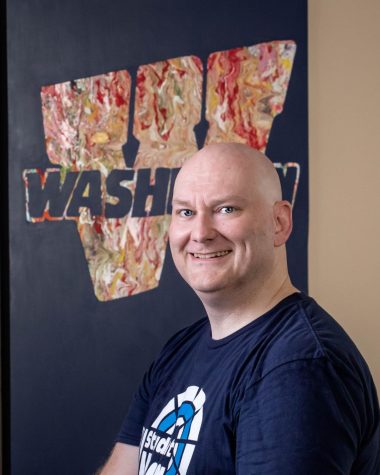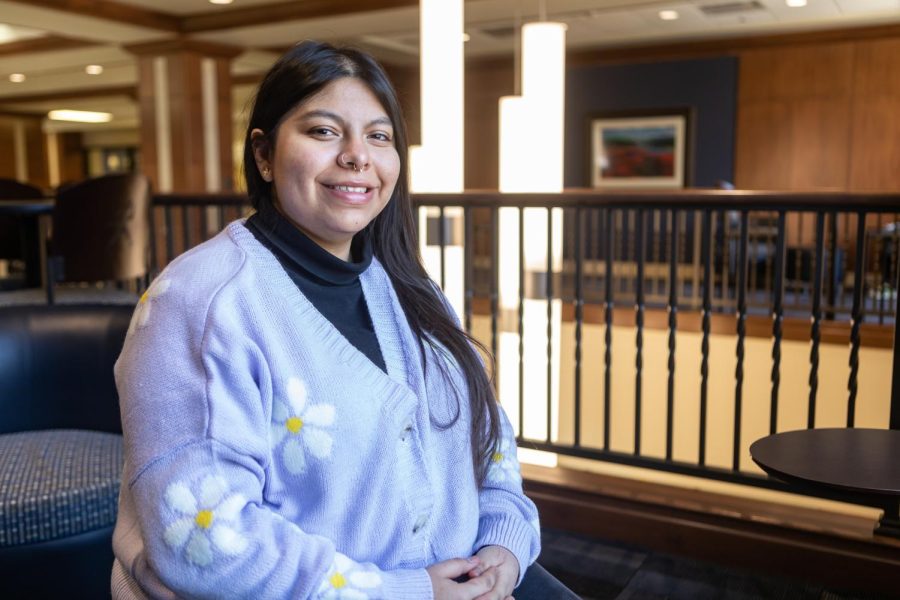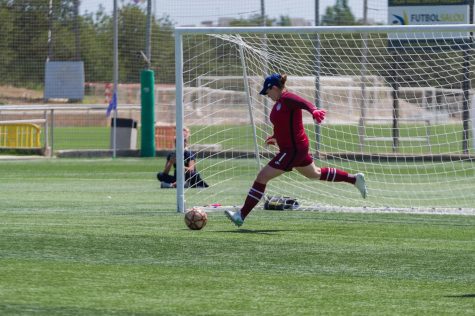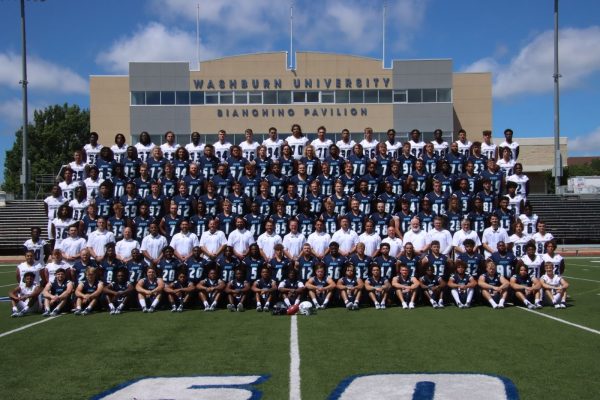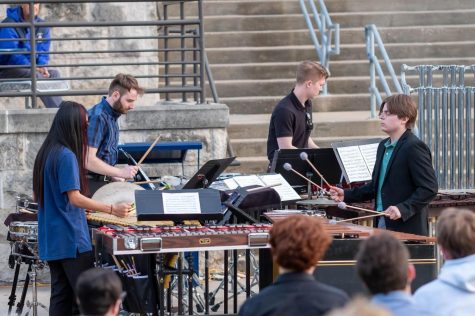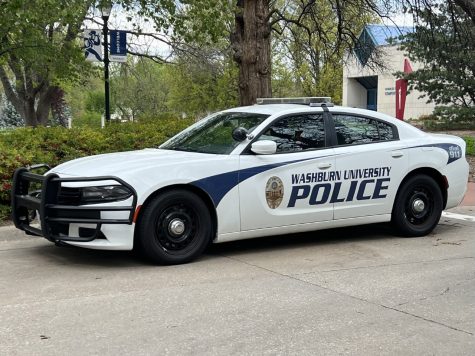First-generation students share the struggle of paving the way
Indigo Magazine
Nancy Guerrero, a first-generation student, decided to get through all her general education requirements before declaring her major. For some students, finding the right fit in a major can be the most difficult part of college.
First-generation students make up 40% of Washburn’s student population. Washburn defines first-generation students as those who come from homes where their parents or guardians have not completed a college degree. Siblings are not taken into account.
The transition to college can be made easier for some students by having a family who knows the language, customs and expectations of a college education. First-generation students may find themselves in unfamiliar territory as they navigate scheduling classes, choosing a major, reading a syllabus, filling out the forms for financial aid and deciding how much time they can devote to work or family obligations.
“Finding their fit and truly believing that higher education is for them is important,” said James Barraclough, director of undergraduate initiatives and student success lecturer at Washburn University.
Nancy Guerrero, a first-generation student, officially decided to attend college her junior year of high school after receiving encouragement from teachers and consulting with her mom on the decision. She said that while her parents were fine with her not going, she felt the pressure to go because of the sacrifices her parents made.
“I wanted to make my parents proud,” Guerrero said. “My parents came to the U.S. for a reason. I have all these opportunities and resources. I need to use them.”
Not all parents pressure their children to attend college, but it’s common for first-generation students to consider the impact their education will have on their families. Areli Bermudez, a Washburn alumna, tells a similar story to that of Guerrero. As a child of parents who immigrated to the United States, she felt the need to try for a four-year degree. Bermudez now has a bachelor’s degree in art and history and a master’s degree in library science.
“When you come from a different country and everything is new and scary, you just rely on the reasons why you did it. I did it to provide more for my kids,” Bermudez said. “Even though it’s not the only way for my parents to see their hard work realized, I get it was one of the moments where it was, ‘This is the reason we wanted to come and deal with everything we’ve been through.’”
After the initial decision to attend Washburn, Bermudez said the application process was an obstacle. She didn’t know who to turn to when it came to FAFSA or loans. Most of it was done on her own or with the help of Washburn admissions staff.
“I think a lot of people take help from their parents for granted,” Bermudez said. “If somebody’s parents did have a college education, FAFSA and applications may have changed a little over the years, but the basics are still the same. Even just the process of getting into college can be a bit difficult.”
When it comes to immersing themselves into the college experience, first-generation students can find it difficult to find their community. They become so focused on succeeding and doing everything themselves that they miss out on social activities and can feel like outsiders. On top of that, the extra workload that comes with higher education means seeing family less and becoming more isolated.
Brittany Campos, a first-generation student and junior majoring in pre-nursing, describes the loneliness that can accompany the determination when working toward higher education.
“There’s a point where you feel you’re getting overwhelmed with everything. It’s not just school. It’s also your personal life that adds on to problems and then just the stress. I had never felt that before… It was emotionally draining,” Campos said.
Balancing school with family life often means first-generation students juggle two lives that lack understanding of each other. Families without a college background don’t always understand the pressure or workload that is put on a student. Likewise, the peers of first-generation students have little insight on what it means to be at the forefront of this experience.
“You’re the first in your family to go to college and hopefully get a bachelor’s degree, but they- our parents- don’t really know our struggles,” Campos said.
Luckily, Campos was chosen by teachers at her high school to be a part of the Ichabod Success Institute. This program collaborates with Topeka schools that teach under-served populations and gives students who want to go to Washburn the ability to live on campus, take a few classes and immerse themselves into the lifestyle the summer before classes begin. The ISI program also prepares students for what their schedule will look like and helps them make friends before and during their next semester.
Another program at Washburn is We Are F1rst, which was created to offer a safe space and community for first-generation students.
“You get to find other people who are in the same position as you, and we each get to talk about our experience and struggles, or sometimes we just vent,” Campos said. “It helps a lot because you’re like, ‘Oh, I’m not alone in this.’”
Barraclough said he is proud of the success programs and how they have grown over the years thanks to dedicated students and staff.
“One of the things that has been absolutely awesome for me to see from the first-generation connections that we’ve made is the idea of being a first-generation student. As recent as seven years ago, there weren’t identified resources on campus, and it wasn’t a talking point,” Barraclough said. “So frankly, one of the things that has been cool is the student interest in creating the We Are F1rst program.”
With more resources becoming available, it will be easier for first-generation students to seek out higher education and feel confident in their decision as they go forward. What many of them desire is understanding when it comes to their situation and to find a place where they feel welcome.
“Just like for non-first-generation students, not every first-generation student is going to have the same experience and story,” Bermudez said.
Your donation will support the student journalists of Washburn University. Your contribution will allow us to purchase equipment and cover our annual website hosting costs.

